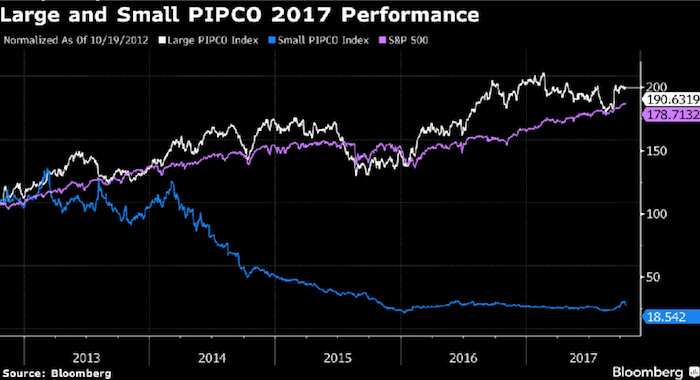 IP Dealmakers 2017 will take place from November 15-17, 2017, at the Apella at 450 East 29th Street, New York, NY. The Keynote Speaker this year will be Dr. Lulin Gao, the Founding Commissioner of China’s States IP Office (SIPO), and a senior advisor to the World Intellectual Property Organization (WIPO).
IP Dealmakers 2017 will take place from November 15-17, 2017, at the Apella at 450 East 29th Street, New York, NY. The Keynote Speaker this year will be Dr. Lulin Gao, the Founding Commissioner of China’s States IP Office (SIPO), and a senior advisor to the World Intellectual Property Organization (WIPO).
In anticipation of the event this year I reached out to a number of those who will be speaking with several questions. The first was simple and straight forward: Is the patent licensing market dead?
The clear consensus seems to be that the patent licensing market is not dead, but that the U.S. market is in decline and due to a weakening of patent rights capital will go elsewhere.
 Erich Spangenberg
Erich Spangenberg
Managing Director, SK14 Advisors
The global patent licensing market is not dead. While there are days it feels like we are living through a secular decline if you focus only on the U.S. market, I believe it is a cyclical decline. The current global market will be sustained by developments outside the U.S .while the U.S. market repairs itself from the damage inflicted by the three branches of the U.S. government.
Erich Spangenberg is currently Managing Director of SK14 Advisors. Mr. Spangenberg was also the founder and former CEO of IP Navigation Group, and the founder and former CEO of nXn Partners. Mr. Spangenberg was previously a partner at the prestigious law firm, Jones Day, as well as an investment banking executive at Donaldson, Lufkin & Jenrette.
 Jaime Siegel
Jaime Siegel
CEO, Cerebral Assets LLC
National Trustee of the Rock & Roll Hall of Fame & Museum
Patent licensing is most certainly not dead. Traditional licensing between operating entities continues, and alternative licensing programs, such as the Open Invention Network, Allied Security Trust and LOT Network are growing rapidly. However, the significantly increased risk profile of asserting patents in the U.S. has had the effect of dampening licensing efforts for NPE’s that have anything other than the most strong and diverse patent portfolios. It is unfortunate that for NPE’s, the mindset of efficient infringement has captured much of the U.S. market. What that really means though, is that pricing needs to be reflective of market realities.
Having practiced for over 25 years, including 16 at Sony, Jaime Siegel is now CEO of Cerebral Assets, LLC, an IP Business Advisory and Global Director of Licensing for the Open Invention Network, one of his clients. Jaime is also the CEO of FlipTix LLC, an early stage tech start-up in the event space, as well as an Adjunct Professor at the UC Irvine School of Law, where he teaches the business of patent licensing and patent litigation.
 Ian McClure
Ian McClure
Director, Office of Technology Commercialization
University of Kentucky
The issue is not whether patent monetization is dead, but instead that innovation investment is at risk because respect for strong patent rights in the US is waning. Infringement-based naked patent licensing — or “patent monetization” — has been made very difficult because of the general weakening of patents’ enforceability. Still, the early stage technology licensing world of university tech transfer remains vibrant – our office at the University of Kentucky did 90% more licenses in FY2017 than in FY2016. But what is lost on this figure is that most of these licenses are to start-up companies that hope to solicit, and must rely on, early stage investment capital. The basis of that investment will be on the promise of the technology, but also the ability of the company to compete. If it does not have any barrier of entry to protect with enforceable patents, the ability to compete is significantly diminished. Ipso facto, the ability to secure investment capital is significantly diminished. This capital will go elsewhere to companies that can fairly compete. As a result, the “respect” for patent rights that curtails efficient infringement, is the same “respect” for patent rights that will fuel investment in the hundreds of early stage innovations we develop at our university.
Ian McClure joined the Office of Technology Commercialization as its Director in 2016. Ian began his career as a Mergers & Acquisitions (M&A) and Intellectual Property (IP) transactions attorney with Wyatt, Tarrant & Combs, LLP in Louisville. Most recently, Ian was Vice President of IP Strategy for Black Stone IP, an investment bank headquartered in San Francisco focused on IP-rich M&A, IP deals and technology-driven transactions.
 Michael Shore
Michael Shore
Partner, Shore Chan DePumpo LLP
I don’t think the IP licensing market is dead, but its much smaller. When we look at projects now, they have to pass additional criteria that did not exist before IPRs in addition to our validity review, infringement analysis, damages analysis and client background checks.
Michael W. Shore practices in the areas of intellectual property commercialization, business litigation, and other select litigation matters. His intellectual property practice is multifaceted, aiding clients in commercializing their patent and copyright portfolios through strategic development, licensing and litigation.
 Michael Gulliford
Michael Gulliford
Soryn IP Group
The patent licensing market is certainly not dead. It is just different, and the cost of defense is no longer very relevant. Instead, the quality of the patents at issue, and the business opportunity, are what matter. Having closed a number of patent licensing deals and/or sales in 2017, we know for a fact that if the right opportunity is presented to the right partner, with the right potential strategic benefit, deals will happen at meaningful valuations. The trick is finding the right angle, and the right partners. It is not easy but the rewards are still there.
Michael Gulliford is the Founder and a Managing Principal of Soryn IP Group, a patent advisory and litigation finance firm headquartered in New York City. Michael has repeatedly been named to the list of the Leading IP Strategists in the World, and is regularly asked to speak and publish on the latest patent developments.
 Kimberly Cauthorn
Kimberly Cauthorn
Global Intellectual Property Leader, Tech Media & Telecom
Willis Towers Watson
No, but it is evolving. It is becoming more global. It’s not just about US patents any more, and it’s not just about US and Western European companies looking for ways to maximize the value of their portfolios.
Kim Cauthorn is the Global Intellectual Property Leader, Tech Media & Telecom at Willis Towers Watson. Kim leads the team responsible for assisting clients with intellectual property and broader intangible asset risk issues and developing intellectual property risk quantification tools and risk transfer vehicles.
 Matt Larson
Matt Larson
Analyst — Tech Litigation
Bloomberg Intelligence
No. Market dynamics and a legal landscape relatively hostile to patent monetization have effectively ended certain business models, but overall patent licensing is alive and continuing to evolve. s an illustration, a composite of publicly traded IP companies with market-caps currently at or above $1 billion outperformed the S&P 500 by roughly 12% over the past five years. Licensing revenues contribute more than 75% of these companies’ overall sales and are largely collected as recurring royalty payments on multi-year deals. By contrast, a composite of the smaller IP companies largely utilizing litigation-driven monetization strategies has lost 80% of its value over the same timeframe. (See graphic below)
Matt Larson is a Patent Attorney and Technology Litigation Analyst with Bloomberg Intelligence focused on high-tech lawsuits and litigation trends impacting the financial markets.

![[IPWatchdog Logo]](https://ipwatchdog.com/wp-content/themes/IPWatchdog%20-%202023/assets/images/temp/logo-small@2x.png)

![[[Advertisement]]](https://ipwatchdog.com/wp-content/uploads/2024/04/Patent-Litigation-2024-banner-938x313-1.jpeg)

![[Advertisement]](https://ipwatchdog.com/wp-content/uploads/2024/04/UnitedLex-May-2-2024-sidebar-700x500-1.jpg)
![[Advertisement]](https://ipwatchdog.com/wp-content/uploads/2024/04/Artificial-Intelligence-2024-REPLAY-sidebar-700x500-corrected.jpg)
![[Advertisement]](https://ipwatchdog.com/wp-content/uploads/2024/04/Patent-Litigation-Masters-2024-sidebar-700x500-1.jpg)

![[Advertisement]](https://ipwatchdog.com/wp-content/uploads/2021/12/WEBINAR-336-x-280-px.png)
![[Advertisement]](https://ipwatchdog.com/wp-content/uploads/2021/12/2021-Patent-Practice-on-Demand-recorded-Feb-2021-336-x-280.jpg)
![[Advertisement]](https://ipwatchdog.com/wp-content/uploads/2021/12/Ad-4-The-Invent-Patent-System™.png)






Join the Discussion
9 comments so far.
Theodore Dean McBain
January 16, 2018 05:22 amAlive Biometric and patent portfolio for license:
6,810,310
7,145,477
8,138,951
9,878,802
Linh Thai
December 6, 2017 07:36 pm— yea, as it come to pass —-
There is a famous case in history where first-to-invent win the war (literally).
Ho Chi Minh & General Giap prototype asymmetrical warfare and free North Viet-Nam from the shackle of colonial power in ’54 .
Che Guevara published Guerrilla Warfare in ’61.
Afterward many other nations blatantly infringed these IP to achieve their independent.
—– so here we are —
Big Corps = colonial powers
PTO/PTAB+certain law makers = puppets king+queens
patent practitioners (PP) = vestige
independent inventors = peasant
—- 2.0 —-
Is there another Che among the PP that can write a treaties on asymmetrical warfare after AIA ?
Is there another Ho Chi Minh/General Giap among the VC that willing to brave malaria infested jungle implementing strategic & tactical battles for the peasants?
Favorable terrains, attrition, support from population conscience, all these concepts are already laid out by Guevara/Ho/Giap sitting in bookshelves in Ho Chi Minh City and Havana.
We inventors have done our part: instant noodles, divorce, ridicule from our kids, no health plan. And we understand that we must sacrificed to make change. A desire to change as strategic faith, emotion as fuel and least of all intelligent for tactical.
Who ever said war are win by “heart and mind” place heart first.
—————————————————————
I’m an inventor that will not stop until my invention is in Mars and I hope that I can meet a leader that as focus as General Giap is when B52 is making their sorties over his tunnel.
-Linh Thai
Salt Lake Valley, Utah
T David Petite
November 3, 2017 12:04 amIP industry is definitely not alive and thriving thats for sure! And most folks can agree that these days are certainly not the good ole days to be in the IP business, not unless you are actively working as or with the patent executioners that keep adding numbers to the patent killing fields, or patent wholesaler broker selling at patents at below the cost of filing the initial patent.
Gene Quinn
November 1, 2017 12:19 pmBemused-
I think you are exactly right. There are still deals getting done, but if you are an individual inventor or small business you really don’t have any chance in this market.
Once upon a time we would consider companies that ignored the patent system in a race to grow big and gain market share and dominance as foolish. Today that seems to be the way you have to operate. Get as big as you can as fast as you can and then work to backfill your missing portfolio. Doing it any the old fashion way where you grow organically through protected proprietary innovation is dead in America — at least at the moment.
Tim
November 1, 2017 06:55 amPretty sad. As many of us were ripped off by these judges in the Vringo vs IP Internet, after a unanimous 12 person jury in Judge Jackson’s Norfolk Ct found Google, AOL, Gannett & Target guilty on all 14 counts during an infringement case. I didn’t realize our legal system had been so corrupted until those 2 of 3 judges at CAFC “tossed” the case, and a Supreme Court wouldn’t even see the case. And now we have an O’Malley involved, after she and Martin left the Governor’s Mansion in Annapolis and did a pencil job to steal furniture! She and Martin shouldn’t be allowed to have a dog catcher’s license. Meanwhile, Vringo has changed it’s name, after the stock went down the tubes and did a 10-1 reverse split, and closed yesterday at a whopping $1.22. Symbol: FH, reports on 3 to 7 November. And “yes”, I’m still holding the bag, sad to say.
Bemused
October 31, 2017 05:52 pmGene,
I believe the answer to this very important question depends on what you mean by the “patent licensing market”.
If you mean international patent licensing deals – probably not.
If you’re a big operating company engaged in large portfolio cross-licensing transactions – probably not.
If you’re a company with an extensive patent portfolio (think Ericsson; Qualcomm, et al) and deep pockets for sustained PTAB and district court litigation – probably not.
If you’re a start-up tech business or an individual inventor attempting to get fair value for your small portfolio or individual patent – deader than disco.
PTO-Indentured
October 31, 2017 03:20 pmUS Patent System Post-AIA — Made to Turn On a PTO Big-Corp Bias
If I had to guess I would say a significant share or majority of IPW readers are US based and if so, care more about what the US PTO/AIA has done to the US licensing market than what the ‘global market’ for IP licensing is for multi-national corps. Veering to the ‘global market’ wittingly or not, I think this misses the mark, and helps perpetuates a bias, swallowed hook, line and sinker by the PTO: as if the US economy, employment and revenue turn primarily on such ‘global’ companies (it doesn’t); as if distinction in US inventing comes primarily from such companies (it doesn’t). Yet the Big-Corp narrative bias “just keeps rolling along”. And, to the extent that it does, the U.S. patent system literally ‘disintegrates’.
Think the iPod (and then by logical extension the iPhone and iPad) came just from Apple? Inclusive of iPod’s distribution of medialess content/apps — then iTunes’ distribution of such? It didn’t. It was brought to Steve Jobs by, dare I say, an ‘individual inventor’ / NPE, providing a solid foundation for Apple’s most-formative IP-supported growth (all pre-AIA), leading to what today is the wealthiest corporation in the world.
Accordingly a global market IP licensing analysis (bias) is about as relevant as an analysis of US business worth, absent all ‘small entity’ types (500 or less employees) and all small and sole proprietor businesses.
What can the PTO point to post-AIA, as the best of Big-Tech break-through innovations and their current greatest revenue generators? The daily data-mining and selling of your personal behaviorial habits and location whereabouts, ‘click-bait’ looming up everywhere online to mine and sell even more of the same? Ironic, no association of such Big Tech-Corp tactics being: the ‘works of a troll’ (and apparently, irreversibly so).
A comment such as “pricing needs to be reflective of market realities” is not much help either, if its a thinly-veiled ‘reality’ being advanced in citing, one or more entities formed to build a consortium of biggest national and/or multi-national corporations so they can all agree (concerning IP licensors) ‘we care enough to pay the very least’. If bananas in the free market were regularly selling for a buck a pound, we all agree henceforth: to set a cap at significantly less than a buck, reasoning: our combined clout is so big—’we don’t have to care’. A perfect ‘efficient’ global market adaptation to essentially preclude post-AIA individual U.S. inventors from offering an exclusive licensing of their IP to a single top player (competitor). Such licensing ‘coordinating’ is to U.S. IP licensing (“death”), what the AIA/PTAB/IPRs are to claim validity. Such ‘offers’ can be so low, they bring a whole to meaning to ‘Free Enterprise’.
So long as IP attention is easily diverted (or wooed/influenced) to a ‘global market’ bias, such that its economics (or ‘brand’) trump the more substantial productivity and inventiveness of U.S. 500 employee-and-under entities; and, a current AIA-fueled six-fold decrease in U.S. individual inventors continues in a downward plunge, the U.S. patent system will continue, to literally ‘disintegrate’.
angry dude
October 31, 2017 09:38 amYes, it is dead
The doc said ‘to the morgue’, to the morgue it is!
Night Writer
October 31, 2017 08:11 amThe three big attacks on patents:
1) PTAB
2) Alice
3) CAFC judges since O’Malley have been selected by Google.